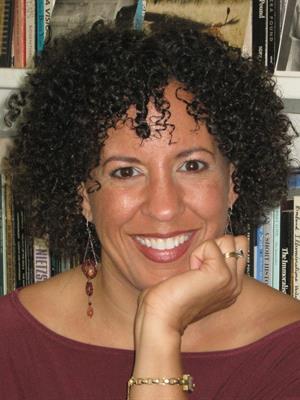
Gabrielle Foreman
Professor
University of Delaware
133 Memorial Hall
Newark, DE 19716
Biography
As an award-winning teacher, scholar, advisor and activist, Dr. P. Gabrielle Foreman is committed to her students’ development and to the fields of African American studies and nineteenth-century literary history and culture.
Foreman is the author of Activist Sentiments: Reading Black Women Writers as well as a plethora of highly-regarded articles and book chapters that are considered central reading in her fields. She is known for her collaborative work including an edition of Harriet Wilson’s Our Nig (Penguin, 2009) lauded for picking up “one of the coldest trails in 19th century African American studies,” as one reviewer put it. Work featured in The Boston Globe also revealed that the young girl once called “our Nig” became a well-known antebellum hair care entrepreneur whose enterprise flourished fifty years before the advent of Madame C.J. Walker.
Community engagement is also one of Foreman’s central commitments. She was named a Kellogg National Leadership Fellow for her work with youth. With young activists and partners from the non-profit sector she co-founded Action for Social Change and Youth Empowerment. ASHAYE put young activists on boards of directors and provided training to help build cohesive groups of youth leaders of color working across issue areas, race, and the geographical divide of Southern California. Her work with community-based organizations on the issue of sustainable community/academic partnerships continues.
As a result of her research and of her engagement with undergraduate research and community groups, Gabrielle Foreman has been invited to give keynote addresses, to facilitate workshops and present at seminars, conferences and community group gatherings in the United States, Europe, Africa, and the Middle East.
At University of Delaware, she is the faculty advisor for the Black Graduate Student Association. She hosts professional development workshops across disciplines and, with English and History graduate students, started a digital humanities working group.
This Page Last Modified On: